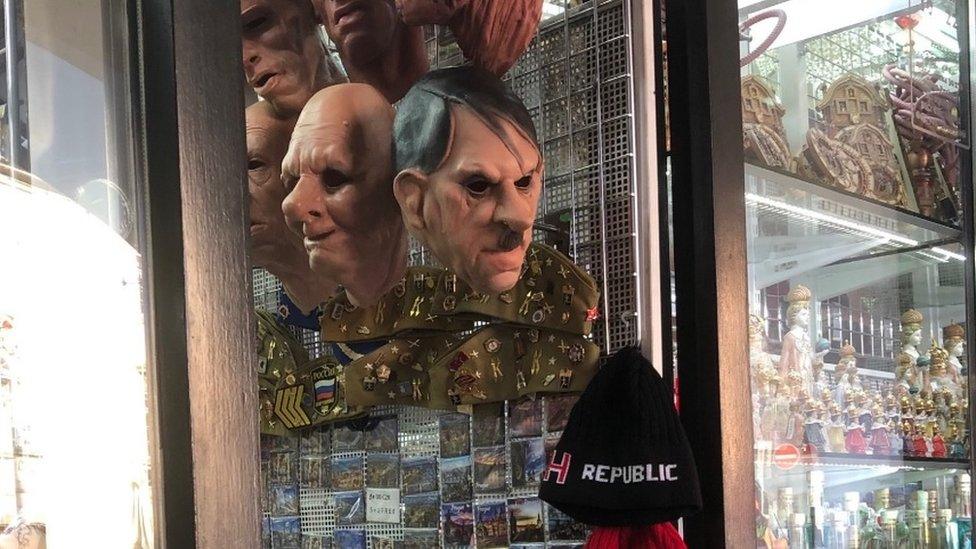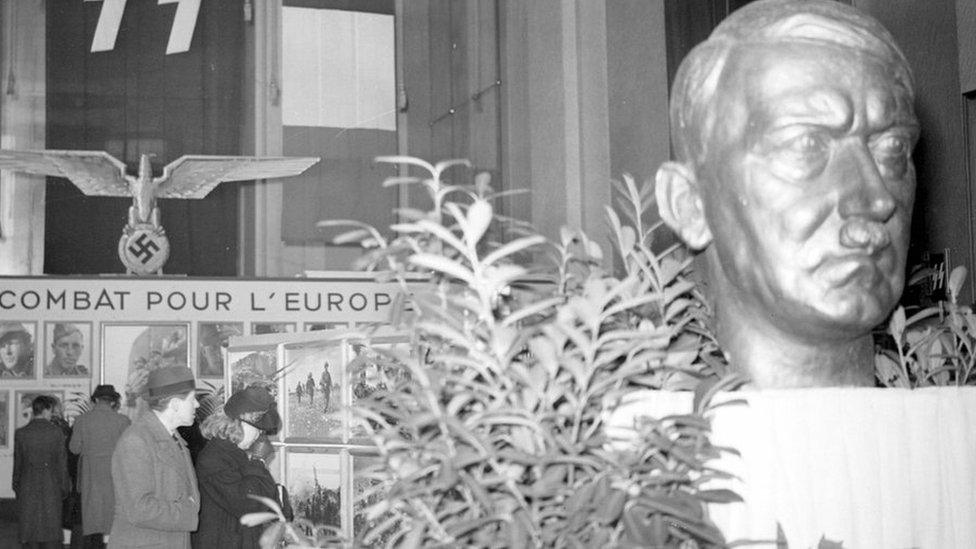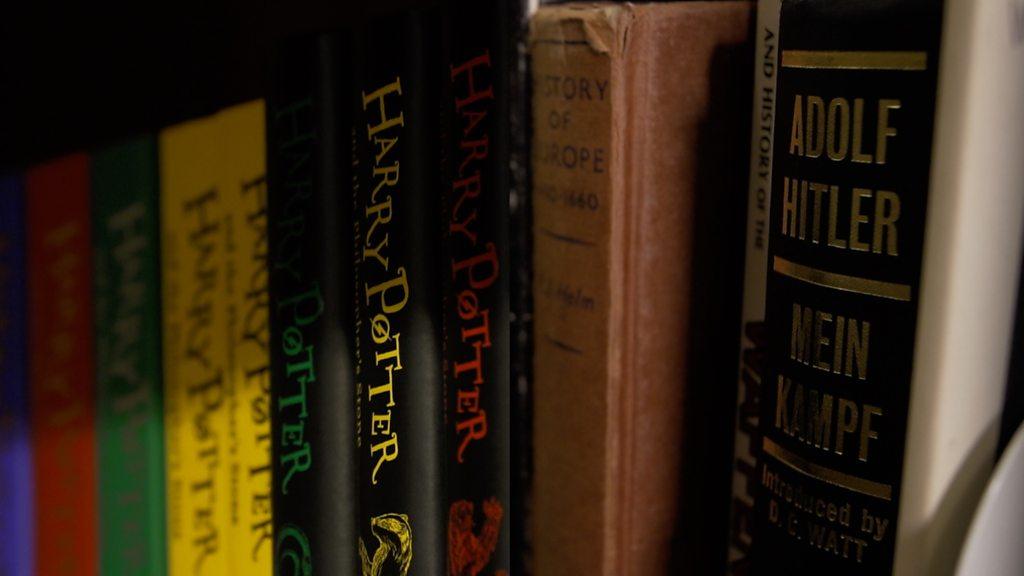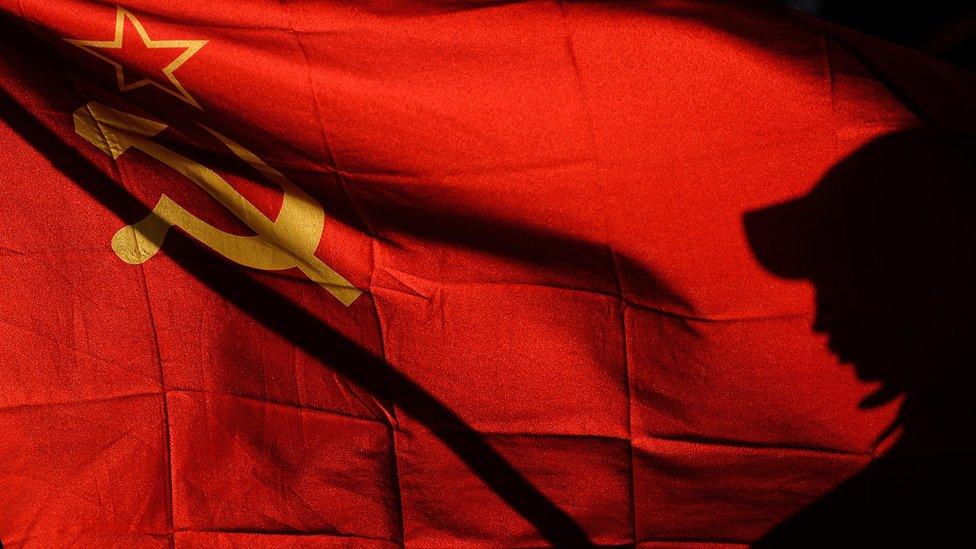Adolf Hitler mask: Czech police probe shop in Prague
- Published

German ambassador Christoph Israng tweeted a picture of the mask
Police are investigating the sale of Adolf Hitler masks at a shop in the capital of the Czech Republic, local media report.
German ambassador Christoph Israng pictured the mask on display in a souvenir shop in Prague.
"The Czechs suffered so much under the Nazi regime," Mr Israng tweeted. He did not name the shop.
An investigation has been launched to determine whether any laws have been broken, police said.
"I can confirm that we are dealing with the case of mask sales in the centre of Prague," a police spokeswoman told Czech news agency CTK, external.
As leader of Nazi Germany, Hitler oversaw the annexation and occupation of the Czech Republic, formerly Czechoslovakia, from 1938 to 1945.
Under Nazi occupation, Czech civilians were massacred and sent to concentration camps during World War Two.
In reply to Mr Israng's tweet, Czech's interior minister Jan Hamacek said police were dealing with the matter, external.
Israeli ambassador Daniel Meron also weighed in on Twitter, condemning the masks as an "affront to Holocaust survivors".
Allow X content?
This article contains content provided by X. We ask for your permission before anything is loaded, as they may be using cookies and other technologies. You may want to read X’s cookie policy, external and privacy policy, external before accepting. To view this content choose ‘accept and continue’.

The sale of Hitler masks at the same shop was brought to light by a reporter earlier this year, external.
He tweeted a picture of the mask on 27 January, International Holocaust Remembrance Day.
Holocaust survivors: The families who weren’t meant to live
A similar incident involving the sale of politically sensitive merchandise happened in Lithuania in 2018.
Walmart stopped selling T-shirts and hoodies emblazoned with Soviet hammer and sickle symbols, after Lithuania reprimanded the American retail giant for doing so.
The hammer and sickle symbol is banned in Lithuania, which was occupied by Nazi Germany during World War Two, and the Soviet Union for decades thereafter.
Soviet leader Joseph Stalin ordered the deportation of more than 275,000 Lithuanians to Siberia between 1940 and 1952.
- Published5 September 2019

- Published9 October 2019

- Published18 September 2018
